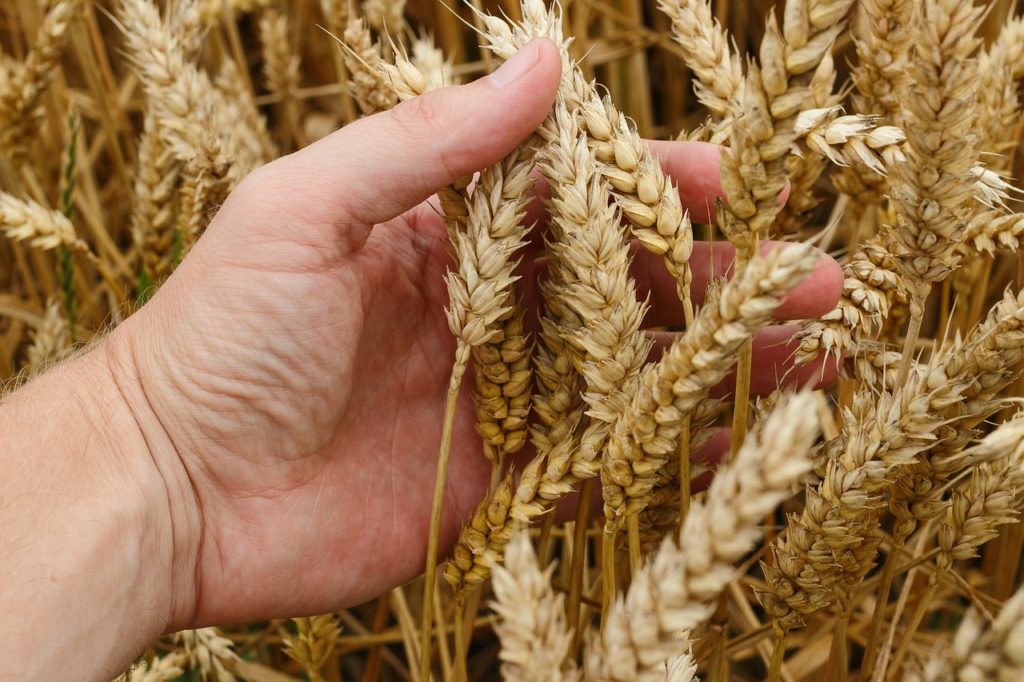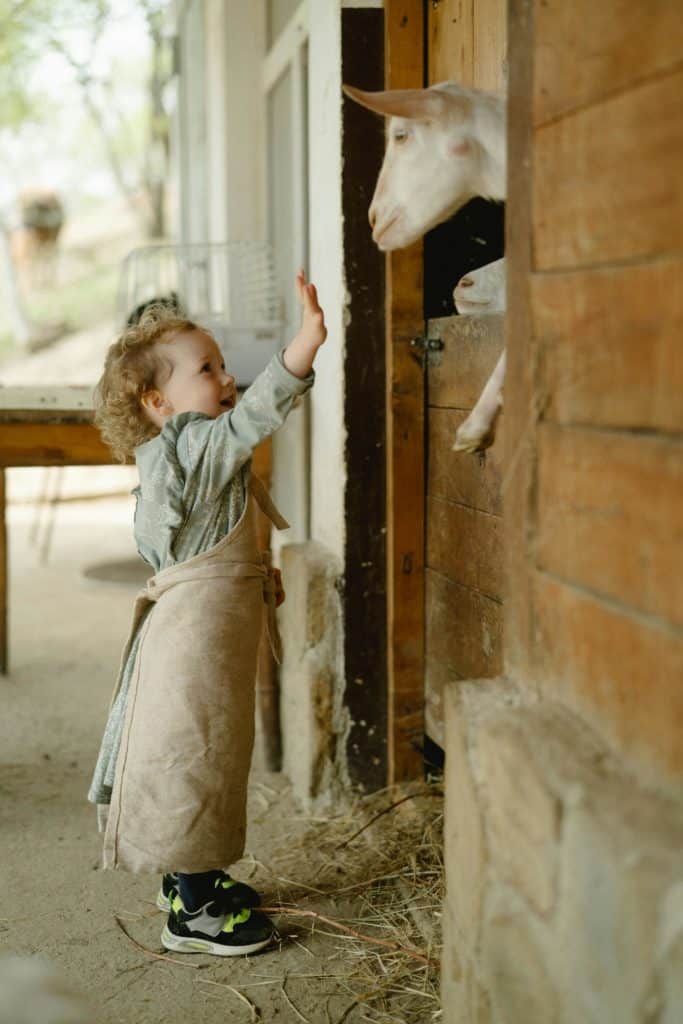Useful training courses for taking over a farm
Agriculture is no longer the preserve of the children of farmers trained in the sector. For some years now, people with no agricultural background have been actively seeking to set up in farming.
But setting up your own business is a long road… and one that can be fraught with pitfalls. All the more so if you don’t have the necessary skills, experience or qualifications.
In fact, there is no law requiring you to have agricultural training, although obtaining a diploma is strongly recommended to simplify future procedures.
No matter how you use your farmland (by renting, buying or making it available), and for the various forms of support you may be eligible for, you will be required to have a minimum level of farming experience.
For example, you may need an agricultural diploma (minimum european level 4) for the administrative part of your project. This is particularly the case in Brittany to obtain :
- Authorisation to farm under the Control of Structures scheme
- Reducing the risk of SAFER pre-emption
- Benefit from aid for setting up as a young farmer (e.g. Dotation Jeune Agriculteur)
- Exercising your right to take over farmland farmed by a farmer

Become a farmer! Choose the right career path.
Before you start your training, a quick reminder of the definition of a farmer or agricultural activity in legal terms: « It is a person who has control over and exploits a plant or animal biological cycle ».
To take full control of your business, you need to set up a company, which involves registering with the local Chamber of Agriculture. If the activity reaches a certain threshold in terms of surface area, working hours or income, you will then need to join the Mutualité Sociale Agricole (MSA).
Although it is possible to become a farmer or acquire land without an agricultural diploma, it can be more difficult in administrative and financial terms. Farming requires a wide range of specialist skills. That’s why it’s important to assess whether you need agricultural training, depending on your plans.
1 – Identify your professional needs and objectives
To target the career path best suited to your goals, it’s crucial to start by assessing your current skills.
- Identify your strengths and weaknesses in the agricultural fields.
- Analyse your past experience, whether professional, academic or personal, to determine which skills you already master and which you need to develop. Based on this assessment, you can choose a course that fills in your gaps and reinforces your strengths, bringing you closer to your career goals.
Today, anyone who is in employment can undertake a skills assessment. They are eligible for the personal training account in France.
2 – Find out about careers in agriculture
Finding out about careers in agriculture is essential for anyone wishing to enter the sector. Agriculture offers a wide variety of careers well beyond the traditional role of the farmer, with occupations that differ according to the types of production, technologies employed and markets targeted.
It’s vital to start by understanding the different agricultural sectors, such as livestock farming, cereal growing, viticulture and organic farming. Each sector requires specific skills and offers a variety of opportunities.
It is also important to keep abreast of the technological developments and modern practices that are transforming the sector. Innovations such as precision farming, the use of drones and integrated crop management systems are making this an increasingly technical field, requiring appropriate preparation.
The economic and regulatory aspects are also crucial. Find out about available subsidies, legal requirements and market conditions. Understanding these elements can help you plan a farming project effectively and anticipate potential obstacles.
Meeting industry professionals, visiting farms and taking part in trade fairs and conferences are effective ways of getting first-hand information and making valuable contacts. These experiences give you a better understanding of the realities of the profession and provide inspiration from successful career paths.
In short, finding out about careers in agriculture requires an in-depth exploration of the different sectors, technological innovations, economic and regulatory aspects, as well as direct contact with professionals in the sector. This is essential if you are to make informed decisions and succeed in this field.
Agricultural training
Identifying the different levels of agricultural training available is essential for anyone wishing to enter or progress in this sector. They are varied and suited to different profiles, from beginners to experienced professionals looking to specialise.
- Initial agricultural training :
- CAP Agricole (Certificat d’Aptitude Professionnelle Agricole): This level V diploma is available on leaving secondary school and provides the basic skills needed to work on a farm. It offers a number of specialities, including horticultural production, animal husbandry and plant production.
- Bac Pro Agricole (Professional Agricultural Baccalaureate): Accessible after the troisième class or after a CAP, this level IV diploma trains students over three years. Specialities include running and managing a farm, horticultural production and viticulture.
- Intermediate agricultural courses:
- BTSA (Brevet de Technicien Supérieur Agricole): This level III diploma is prepared in two years after the baccalauréat. It offers a range of specialities, including nature management and protection, agricultural, biological and biotechnological analysis, and animal and plant production.
- Licence Professionnelle Agricole (Professional Agricultural Degree): Accessible after a BTS or DUT, this level II course takes one year to complete. It enables you to specialise further in a specific field such as agro-ecology, farm management or the trade in agricultural products.
- Advanced agricultural training :
- Agricultural engineer: This level I course is accessible after a post-prepa competitive entrance examination or parallel admission after a BTS or a bachelor’s degree. It generally lasts five years and covers a variety of fields including agronomy, agri-food and the environment.
- Master’s degree in Agronomic Sciences: This level I course, accessible after a bachelor’s degree, lasts two years and allows students to specialise in specific areas such as sustainable agriculture, innovation in agriculture or agricultural policies.
- Continuing and specialised agricultural training:
- Certificates and short courses: Aimed at working professionals, these courses enable students to acquire specific skills or update their knowledge of new technologies and agricultural practices. They cover a wide range of subjects such as precision farming, soil management and environmental standards.
- BPREA: (Brevet Professionnel Responsable d’Exploitation Agricole) is the most popular qualification for people looking to change careers. This diploma can be obtained in less than a year (10 months) in intensive training. Although it is theoretically a two-year course, holders of a baccalauréat are exempt from the general subjects, enabling them to complete the course in less than a year.
- Apprenticeships and work placements in agriculture :
- Apprenticeships: Apprenticeships, which are available at various levels, combine theoretical training with practical experience in a company. They are particularly suitable for gaining work experience while studying.
- Work placements: Integrated into school curricula or offered by agricultural organisations, work placements enable theoretical knowledge to be put into practice and familiarise students with the professional environment.
In conclusion, agricultural training courses cover a wide range of levels and specialities, meeting the needs of both novices and professionals wishing to improve their skills. Identifying the right course for your personal and professional goals is a key step to success in agriculture.
Professional agricultural training
These are only those listed in the « Répertoire National des Certifications Professionnelles » (RNCP), awarding diplomas, titles or « Certificats de Qualification Professionnelle » (CQP).
They are classified as follows:
- Qualifications that do not confer professional competence but are nonetheless useful, such as Certificates of Specialisation. These complement general agricultural training by focusing on specific occupations such as market gardening, perfume plant production, beekeeping, etc.
- Professional Qualification Certificates (CQP) issued by professional branches, available from public or private bodies. These qualifications are not the responsibility of the Ministry of Agriculture. To check whether an agricultural training course is recognised as a CQP, visit the « France Compétences » website.
- Certificates of specialisation. These are designed to complement more general agricultural training by training you in a particular trade. Among those that may be relevant to you are :
CS – Management of market garden production
CS – Production of perfume, aromatic and medicinal plants
CS – Cider production option
CS – Beekeeping
CS – Organic Farming Production and Marketing Option
CS – Management of a beef/dairy farm
CS – Management of a Meat Sheep Farm
CS – Goat Farming
CS – Pig Farming
CS – poultry farming and product marketing option
CS – Meat Product Processing option
CS – Production, processing and marketing of farm products option
CS – Specialized Dairy Processing Technician option
CS – Option: Green Tourism, Reception and Activities in Rural Areas
As part of your start-up project, certain training courses may be compulsory, including statutory courses such as the Certificat d’Aptitude à la Conduite en Sécurité (CACS), the Certiphyto and other certificates specific to livestock farming.
The advantage of training leading to certification lies in the fact that it is recognised by the State, making it easier to gain access to jobs, grants and a specific level of pay. It also boosts confidence among potential employers, financial institutions and investors.

Preparing to take over a farm requires a thorough assessment of your skills, an understanding of the different agricultural professions, and the choice of training suited to your project.
Quatuor-Transactions is here to help you along the way. Whether you’re still thinking about it or ready to make a decision, we’ll be at your side to guide you through the choice of training, administrative procedures and funding opportunities, to ensure the success of your farming project.

Ludivine Pouliquen
Negotiator Morbihan
